FACTSHEET
MASTER’S PROGRAMME ARTS AND SOCIETY
Dear students,
It is with great excitement that we welcome you to the Master of Arts programme in Arts and Society at Utrecht University. We believe that the diverse, international cohort of incoming masters students offers a great and much needed platform to discuss the changes and the challenges both the arts and society are going through at the moment.
The MA in Arts and Society at Utrecht was designed to meet a growing global demand for professionals who are capable of combining a firm belief in the value of arts and culture with a deep understanding of the social processes underlying these vital areas of human life in the twenty-first century. Arts and Society marries rigorous theoretical training with practical orientation in the current state of the arts and culture sectors locally, regionally, and globally.
With intensive teaching modules, research training, a local, regional or global internship, and a master’s thesis, the programme engages with a wide variety of arts practices, practitioners, institutions and agents, spanning fine arts, performing arts, museums, festivals, material and intangible cultural heritage, as well as alternative or ‘underground’ arts practices and movements. And on top of the time we spend in the classroom, we also encourage you to explore the cultural field in the Netherlands and go visit exhibitions, festivals, and performances in your fields of interest.
We have no doubt that you will find the program not only intellectually challenging and personally fulfilling, but that you will also grow and flourish as a scholar in the stimulating academic environment of Utrecht University
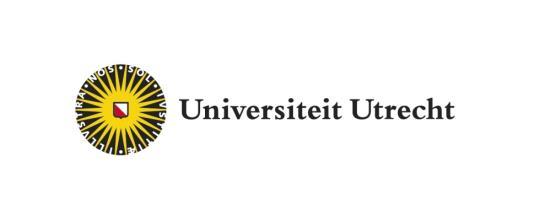
In this Factsheet, you will find information about the programme, the structure, and the lecturers. It also includes tips about accommodation and transport, in order to help you find your way in Utrecht. Please read this information carefully and feel free to approach us at any time for further information or clarification.
We look forward to meeting you, to the formation of our Arts and Society community, and to an inspired year!
Yours Sincerely,
Dr. Evelyn Wan
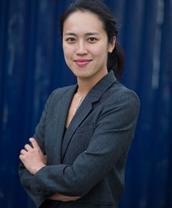
D R . E VELYN W AN TAKEALOOK ATOUR WEBSITE
DO YOU WANT TO PARTICIPATE?
There are several ways that you as a students can actively participate in the MA Arts & Society:
• Firstly, we need one student to represent the programme in the Board of Studies. This board takes the lead in the evaluation of both the individual modules and the programme as a whole, by organizing the yearly educational dialogue between lecturers and students and quarterly board meetings about the course evaluations.
• Secondly, we encourage the participation in several peer-to-peer initiatives, e.g. during the thesis and internship trajectory. Students can independently provide feedback to one another that can serve as an addition to the feedback provided by the lecturers.
• Thirdly, we invite you to take part in various cultural activities in the Netherlands and to take the opportunity to visit exhibitions, festivals, and performances while you are based here. Utrecht University is only one space where learning happens, and throughout the year, we will recommend additional activities to you which are organised by various cultural organisations in Utrecht and beyond. This is a great opportunity to deepen your understanding of the cultural field and to begin networking for future opportunities. One highlight activity each year is the SPRING performing arts festival in Utrecht. They organise the SPRING Academy every year in May, together with UU faculty, to allow for close exchange between scholars, art students, and artists. Please set aside a budget of around €100 for attending performances and the SPRING Academy around Block 4.
THE TEAM OF LECTURERS
■ ■ ■
DR. RICK DO L PHIJN has an interest in transdisciplinary research at large. He published widely on continental philosophy (Gilles Deleuze and Michel Serres) and the contemporary arts. He studies posthumanism, new materialism, material culture (food studies), and ecology.
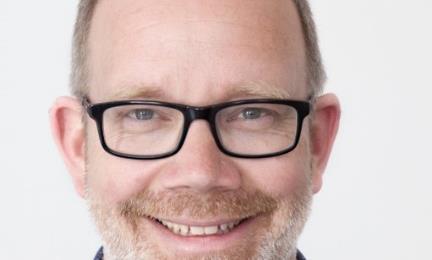
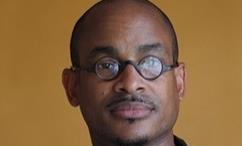
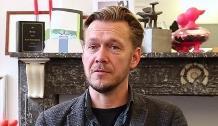
■ ■ ■
DR. AKIN HUBBARD designed and taught courses at Harvard and New York universities on media and globalisation, avant-garde aesthetics, cinema, queer studies, urban arts and experimental ethnography. His courses merge the study of cultural texts, mediascapes and ethnographic data, bringing perspectives on fine arts, music, film, media and literature into dialogue with cultural theory and globalisation studies.
■ ■ ■
DR. LIANNE TOUSSAINT researches the emerging phenomenon of 'techno-fashion': garments that fuse technological functionalities with the aesthetic, expressive, critical, and communicative roles of fashion. She lectures on a variety of topics, including fashion, technology and culture, gender, visual culture and cultural theory.
■ ■ ■
DR. EVELYN WAN
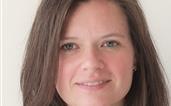
Evelyn Wan is a media and performance studies researcher working in the intersections of digital culture and cultural theory She also occasionally works as a dramaturg and a performance artist in contemporary and urban dance, contact improvisation, and sitespecific work.

■ ■ ■
DR. TOINE MINNAERT focuses on cultural policy and politics, and more specifically on the relationship between national and cultural identity and their influence on national, international and transnational cultural policy. He lectures on institutional programming, the structure of the cultural field, and comparative cultural policy
THIS PROGRAMME
The programme is split up in two semesters (Sept-Jan & Feb-Jun). The first semester consists of five mandatory courses and one elective, offering a foundation that enables students to become progressively self-reliant. The second semester is dedicated to the MA thesis and the internship.
In Researching Arts & Society I, the student is introduced in various methods and their suitability to conduct research within the domain of A&S. In Researching Arts & Society II students write their thesis proposal, supported by group discussions and (peer)-feedback sessions. In the courses Thinking Arts & Society and Curating Arts & Society a selection of concepts is explored in depth. The concepts are introduced through literature and group discussions, and are further developed and explored through a more applied approach. In Exploring Arts & Society, we engage in an active conversation with partners in the field, and explore various ways of mapping that field and its dimensions. The elective offered by A&S (Arts & Society: experimental fieldwork) focuses more exclusively on ethnographic research, exploring experimental forms of researching and reporting. Students can also choose another elective offered by the Department of Media and Culture Studies.
The MA thesis is a scholarly text in which students are expected to contribute, on the basis of independent research, to a debate within the field of arts and society. It should be structured around a central research question or issue that is clearly formulated and has a strong relevance to active scholarly discussions. The body of the thesis should include the methodology and theoretical frameworks employed, and your findings. In the conclusion, the findings are analysed in the light of the original question or issue and the broader implications of these findings are explained. The thesis has a length of about 15,000 words (including notes and bibliography), and will be evaluated by the supervisor and a second assessor.
The internship allows the student to gain hands-on experience in a practice of own choice within the field of arts and society. Prior to the internship, students define their goals and intentions; during the internship, students engage in practical work and reflect on this engagement through journal entries and updates with their University supervisors; after the internship is complete, students reflect on their experience in a written report.
EDUCATIONAL PHILOSOPHY
At the basis of the educational philosophy of A&S is the principle that we connect a thorough knowledge of the academic discourse with a translation into concrete art and cultural practice, in which both theoretical concepts and concrete current themes can serve as a starting point. This is translated in assignments that emphasise the reflection on the work that has been done and the rather than testing of specific knowledge. We frequently work with portfolios that contain a collection of smaller assignments and reflections, and show the progress in thinking and writing. Also, we look for alternative ways of presenting the findings, e.g. in podcasts, curatorial statements and interactive group presentations.
THIS MASTER’S PROGRAMME AND OUR SOCIETY
The name of the MA is a clear indication that the programme is very much connected to societal issues, both the role of the arts in society and the presence of society in the arts. This means that we are addressing a variety of current issues like urbanism, sustainability, datafication, and cultural heritage. In the courses, we connect these issues to specific artistic practices, both in the institutional and in the non-institutional context.
The alumni of the MA are active in a variety of positions, national and international. Some have continued to their academic career as a Research Master student or in a PhD position. Others have started working for arts institutions, both small and large, e.g. as fundraiser, curator or policy advisor. Also, some have become active (again) as arts practitioners. We are gradually building an alumni network to exchange ideas, activities and job opportunities.
COURSE PLANNER: You will find more information on this programme’s courses in the Course Planner:
https://cursusplanner.uu.


nl/english/study/ACAASM-16 LEARNING OBJECTIVES
After graduating from the MA Arts & Society, you will
✓ have profound knowledge of and insight into the field of Arts and Society
✓ have the academic skills to identify, formulate, analyse and suggest possible solutions to problems independently in the field of Arts and Society;
✓ have the academic skill to conduct research on Arts and Society and report on it in a manner that meets the customary standards of the discipline;
✓ possess professional and academic skills, and is able to apply knowledge and insight in a way that demonstrates a professional approach to his or her work or profession;
✓ be able to communicate conclusions, as well as the underlying knowledge, grounds and considerations, to an audience composed of specialists or nonspecialists.
IMPORTANT FOR HUMANITIES STUDENTS
New students students.uu.nl/hum-new Practical information for new students at the Humanities faculty.
Academic calendar students.uu.nl/hum-calendar
Information about days off, course registrations and change-of-enrolment days.
UU online

Information about our online systems and how to log in: students.uu.nl/hum-online In need of a manual? IT manuals: https://manuals.uu.nl/en
REGISTRATION, PROCEDURES, INTERNSHIP INFO
Student Information Desk Humanities students.uu.nl/hum-contact
Programme related matters, such as
• course registration
• course schedules
• study results & study progress (Osiris)
• graduation
Student Services students.uu.nl/en/contact/student-services
Studying at Utrecht University in general:
• registration as a UU student

• tuition fees
• elite athletes
• disability or chronic illness
Internship coordinator students.uu.nl/hum-internshipcoordinator


Information about:
• guidelines and procedures
• internship placements
QUESTIONS ABOUT ENTERING THE JOB MARKET
Career Services students.uu.nl/hum-careerservices
Advice on getting a job after graduation through workshops, CV check-up, and coaching. Your programme coordinator will inform you about programme-specific events.
NEED EXTRA HELP?
Study advisor: students.uu.nl/hum-studyadvisor






Student psychologist: students.uu.nl/psychologist
Workshops: Skills Lab: students.uu.nl/en-skillslab
THINKING OF GOING ABROAD?
International office Humanities: students.uu.nl/hum-io
OTHER FACILITIES
University Library: students.uu.nl/hum-library
Olympos sports centre: olympos.nl/en-us/home.aspx
Parnassos cultural centre: uu.nl/en/parnassos
FACT! You can find your grades, student card and timetable in the MyUU portal and the MyUU app: students.uu.nl/en/myuu and students.uu.nl/en/ myuu-app
FACT! In the second semester, you will have to register in Osiris for courses you wish to attend. If you want to switch courses, you can do so on the change-ofenrolment days before the start of the relevant block.
FACT! Deadlines are always listed in the course syllabus, which your lecturer will provide approximately 2 weeks prior to the course’s ’start.
FACT! If you need more information about specific aspects of your programme, e.g. internships or thesis, please see the Curriculum page on the programme website via students.uu.nl/hum.
FACT! Check students. uu.nl/hum-studentlife for information about living, jobs, sports and leisure in Utrecht!
© June 2023. Utrecht University, Faculty of Humanities. Every effort has been made to ensure that the information presented in this factsheet is correct and up to date. Utrecht University cannot be held liable for any false, inaccurate, or incomplete information presented herein.













